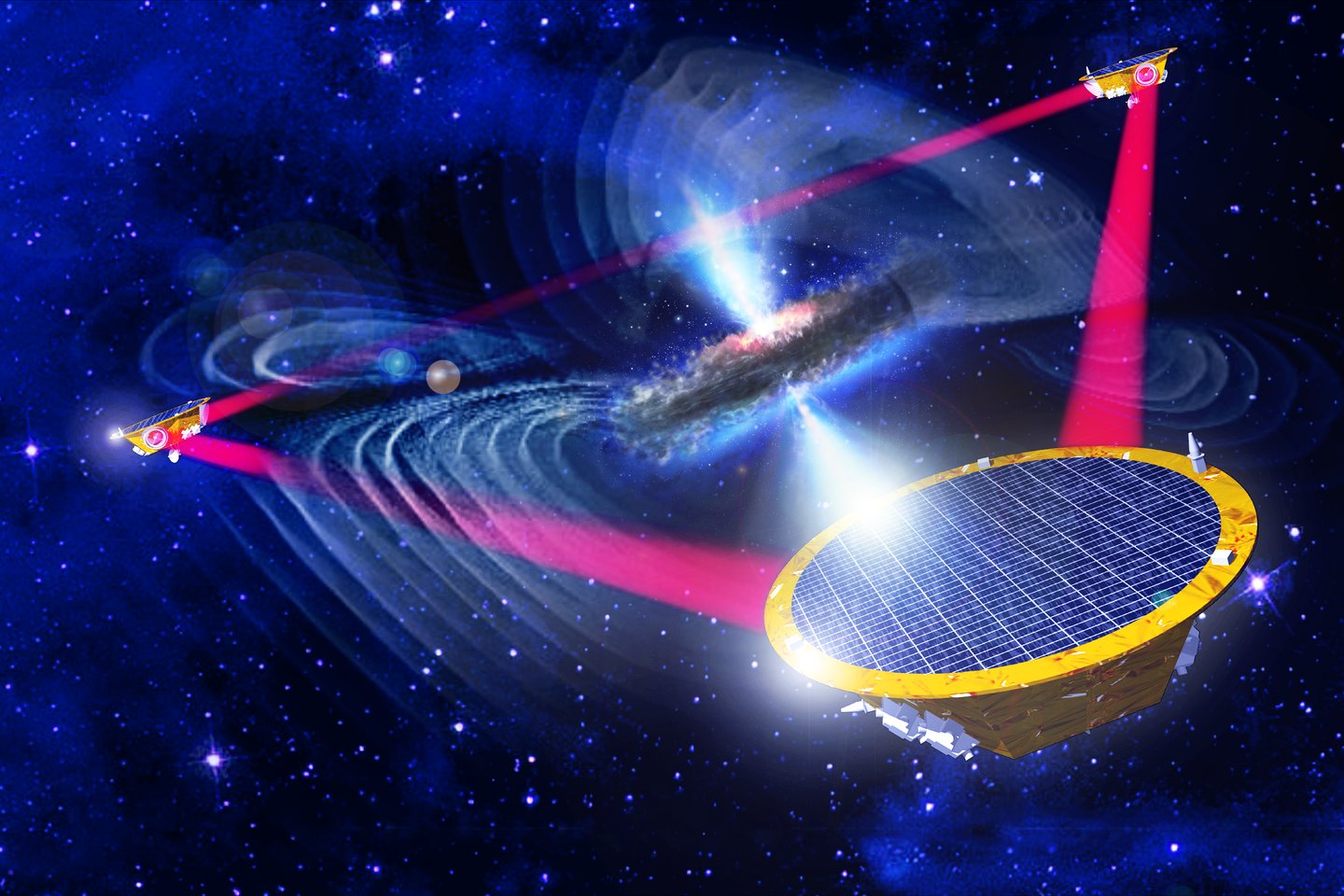Airbus wins ESA contract to further develop LISA gravitational wave observatory mission
LISA will study gravitational waves - ripples in spacetime produced by the acceleration of very massive objects such as black holes supermassive black holes and white dwarfs.

- Country:
- Netherlands
The European Space Agency (ESA) has awarded a contract to Airbus to further develop the implementation of the Laser Interferometer Space Antenna (LISA) mission, the first dedicated space-based gravitational wave observatory.
The mission's key objective is to determine how and when the massive black holes, present in most galactic nuclei today, have formed and grown over cosmic time.
LISA will study gravitational waves - ripples in spacetime produced by the acceleration of very massive objects such as black holes supermassive black holes and white dwarfs. It will also pick up the waves produced by compact objects, like neutron stars or small black holes, that fall into a supermassive black hole.
The mission will comprise three spacecraft flying in a triangular formation - 2.5 million kilometres apart from each other - behind the Earth as our planet orbits the Sun. The spacecrafts' sensitive instruments can detect any movements of test masses that free-fall inside the three spacecraft when a gravitational wave passes
"LISA will significantly expand our knowledge of the beginning, evolution, and structure of our universe. Gravitational waves have been detected by ground-based observatories in recent years – by experiments such as LIGO and the European Virgo observatory – but these facilities are limited in size and sensitivity, meaning that they are only able to detect high-frequency gravitational waves from particular sources (such as merging stellar-mass black holes and neutron stars), Airbus said in a statement on Thursday.
The detailed mission design and final technology development activities for the gravitational wave observatory are due to be completed by 2024, and the launch is expected in the late 2030s.
📢 Airbus has been awarded a contract from @ESA to further develop the implementation of #LISA (Laser Interferometer Space Antenna), one of the most ambitious science missions ESA has planned to date.🔗 Read more: https://t.co/Vgs4MTLrW7#GravitationalWaves #NextSpace pic.twitter.com/T4NRjP9ECo
— Airbus Space (@AirbusSpace) May 19, 2022










